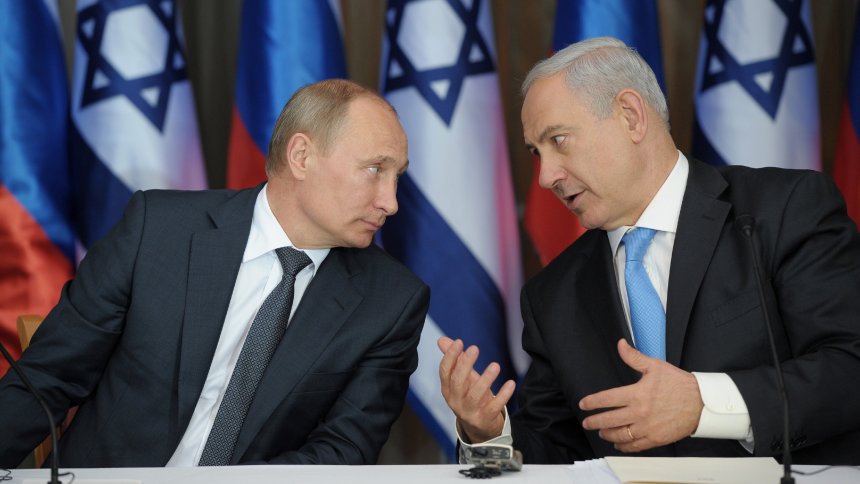Russian President Vladimir Putin has had a call with Israeli Prime Minister Benjamin Netanyahu to discuss the situation in Syria.
The Kremlin said the conversation focused on “some aspects of the Syrian settlement,” which it didn’t specify, following up on the two leaders’ talks in Moscow earlier this month.
The phone call came as Israeli Defense Minister Avigdor Lieberman was visiting Moscow Thursday for talks on the situation along Syria’s border with Israel.
The Syrian government’s plans to recapture rebel-held areas near the border raised Israeli concerns that its backers — Iran and the Lebanese terror group Hezbollah — could take up positions along the frontier. Netanyahu has warned President Bashar Assad that his government would not allow Iran to maintain a permanent military presence anywhere inside Syria.
Iran, in conjunction with the Lebanese militant group Hezbollah, now operates a network of militias recruiting from across the Mideast to fight on Assad’s behalf and maintains a command structure separate from the Syrian government. Israel in recent months ramped up its strikes on alleged Hezbollah and Iranian positions and weapons depots inside Syria, sparking fears of a regional war.
In a TV interview, Assad maintained there are no Iranian troops in Syria, only Iranian officers advising the Syrian army. He denied reports that Iranians have been killed in Israeli strikes.
“Actually, we had tens of Syrian martyrs and wounded soldiers,” he said.
The Britain-based Syrian Observatory for Human Rights, which monitors the war through a network of activists on the ground, says at least 68 Iranian and pro-Iranian forces have been killed in Israeli strikes since April.
Assad said Israeli strikes destroyed a “big part” of Syrian air defenses, but added they have been rebuilt, “stronger than before, thanks to Russian support.”
Israeli Prime Minister Benjamin Netanyahu has said his government won’t accept a permanent Iranian presence anywhere in Syria.
Also Thursday, Israeli Defense Minister Avigdor Lieberman visited Moscow for talks focusing on Syria. Lieberman’s Russian counterpart, Sergei Shoigu, said the two would discuss the situation in southwestern Syria, along its border with Israel.
The Syrian government’s plans to recapture rebel-held parts of the region have raised Israeli concerns that its backers — Iran and the Lebanese militant group Hezbollah — could take up positions along the frontier.
Russian news reports said Moscow wants to cut a deal that would see Russian military police deployed to areas near Israel. The agreement envisages Iranian forces pulling out from the entire area and Syrian rebels there surrendering heavy weapons.
The Observatory said Thursday that Iranian troops and Hezbollah fighters are preparing to withdraw from southern Syria, namely the regions of Daraa and Quneitra near the Israeli-occupied Golan Heights.
A Syria-based official with the Iran-led axis of resistance, however, denied the report saying it is “untrue.” The official, who spoke on condition of anonymity because he was not authorized to speak to the media, gave no further details.
The U.S. and Russia, while backing rival sides in Syria’s war, have coordinated their maneuvers in Syria and largely avoided direct confrontation.
But in February, U.S.-led coalition airstrikes killed several Russian private contractors that appeared to be advancing with pro-government forces on a position held by Syrian Kurdish forces in Deir el-Zour. Russia has maintained the Russian contractors in Syria are in the Mideast country of their own volition and are not the responsibility of the Kremlin.
In the interview, Assad said U.S. and Russian forces would have come in direct conflict long ago in Syria if it were not for Russia’s prudence and judgment.
Asked about U.S. President Donald Trump comments in which he described the Syrian leader as “Animal Assad,” and asked if he has a nickname for the American president, Assad said: “This is not my language, so, I cannot use similar language. This is his language. It represents him, and I think there is a very known principle, that what you say is what you are.”
(YWN /AP)












One Response
wow! half of this sounded like an Arab propaganda paper